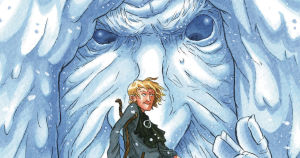
Interview with Leigh Bardugo about Six of Crows
We sat down with NYT bestselling author Leigh Bardugo to talk about her most recent series, its depiction of disability, and more!

We sat down with NYT bestselling author Leigh Bardugo to talk about her most recent series, its depiction of disability, and more!

Six of Crows portrays disability with incredible nuance; it’s realistic, respectful, and perfectly integrated into the characters and story.

From a mythology buff’s perspective, I was delighted with Odd and the Frost Giants. From a disability perspective, though, I was confused.

A nuanced, natural depiction of disability, realistic in both its physical presentation and the character’s emotional reactions.

Stranger represents a case where verisimilitude—the appearance of plausibility—succeeds where a more realistic representation of disability might have failed.

An estimated 1 in 7 women suffer from chronic pelvic pain; it’s bizarre and disappointing that despite these statistics, there are distinctly zero characters with this condition.
If our contributors could tell an author writing a character with their disability one thing–besides “do your research”–what would it be?

For disabled characters, being cured is a common trope. What’s more, in most of these narratives, the characters are cured because they’re better than they were at the start of the book: kinder, gentler, braver. And finally, finally, they’re normal and whole.

The story suggests that Kira’s talents as a threader make up for her disability, justifying her continued survival–with the disturbing implication that without it, she would be worthless.
Here’s the thing no one tells you about people with a medical condition: The disease is always on their mind, but they don’t always want to think about it.